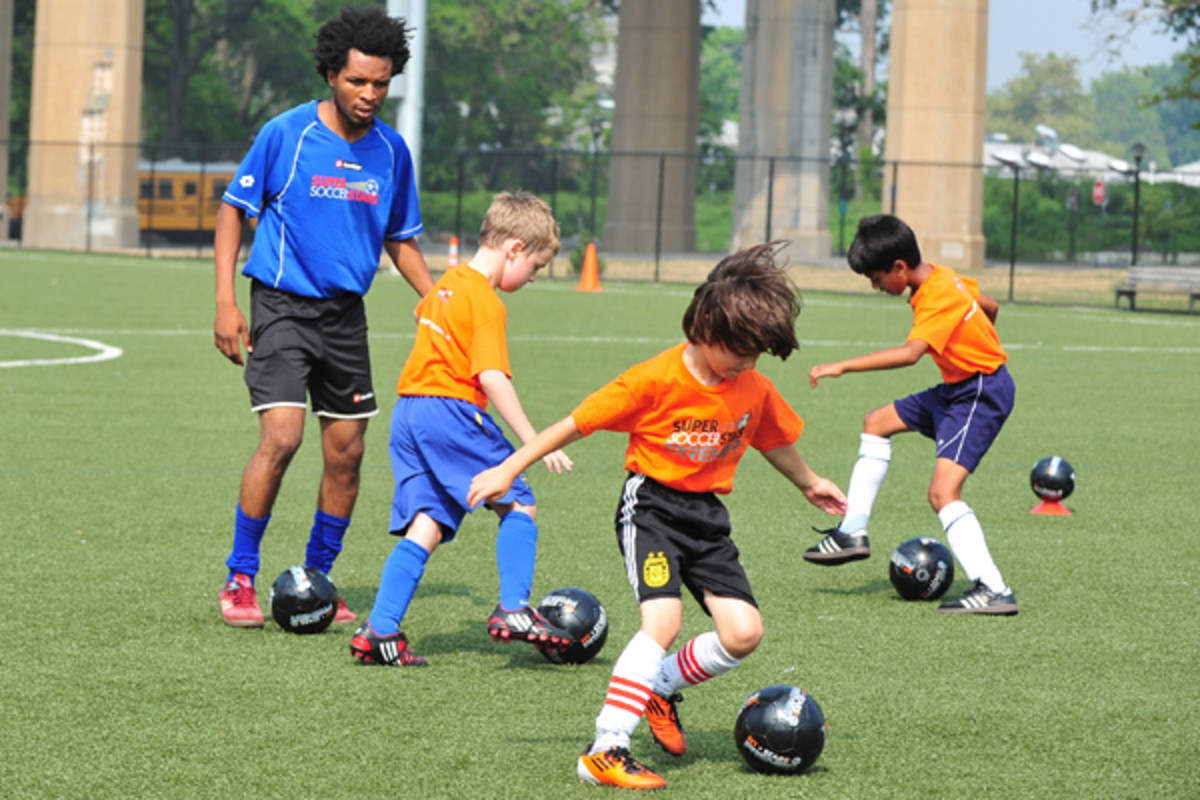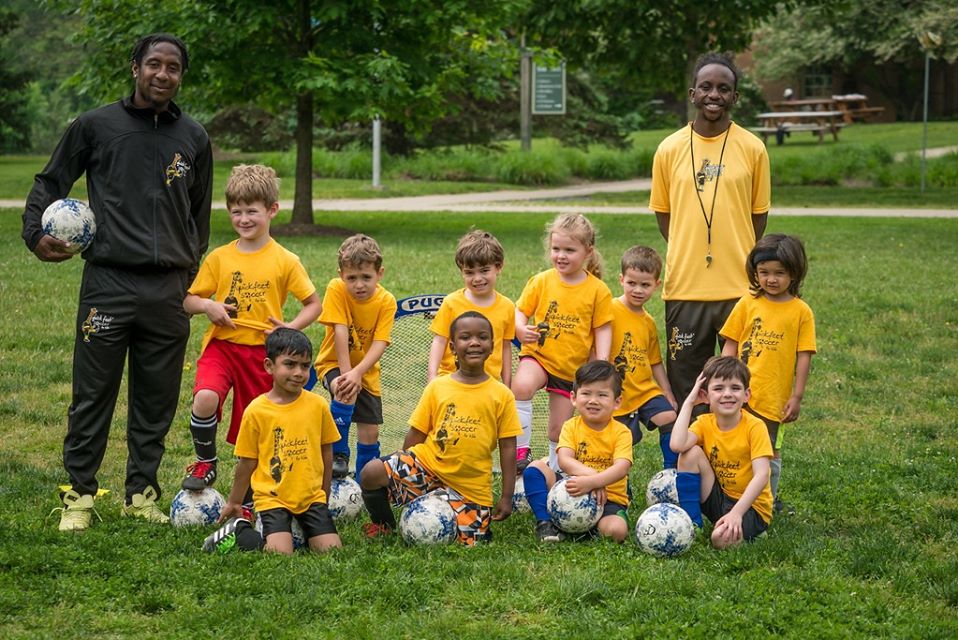

Show the children how to stop the ball with their foot and the proper ways to kick it.As your practice time progresses, it's important to teach kids the most basic elements of the game, like kicking towards the goal and not touching the ball with their hands (something you'll have to repeat more than once!).


After the pairs have kicked the ball back and forth three times, each time shouting their name, advance the lines (or one of the lines) so the partners change. Another is to put the children into two lines and have them kick the ball back and forth to one another.As they kick it back to you, they have to shout out their name. A great game is for you to stand in the center of the circle and kick the ball to a child.Line the kids up or put them in a circle and play some basic icebreaker games to help them get to know you and each other. By setting the tone now, they'll maintain these good lessons as they get older. While it is a good idea to always have kids stretch before they start any form of physical activity, anything you do also set the tone for the future - the season, but the child's lifelong athletic experience as well. Blow a whistle (moderately, no need to scare anyone) and explain to the kids that it is important they stop whatever it is they are doing when they hear that sound.You can also get the parents to help with this part (more on dealing with parents below). Certainly, you can take suggestions from your young players or have some names already handy so the process doesn't get out of hand. On the first day of practice or at your team's first game (in some leagues, the little kids meet just once a week for a hybrid practice/game), introduce yourself and explain what your job is and what you are going to be doing together as a team ("Playing and learning about soccer and having fun!").While teaching team technique is important it is also equally important to teach preschoolers principles like cooperation, taking turns, how to be a good winner and loser and how to get along with each other.


 0 kommentar(er)
0 kommentar(er)
